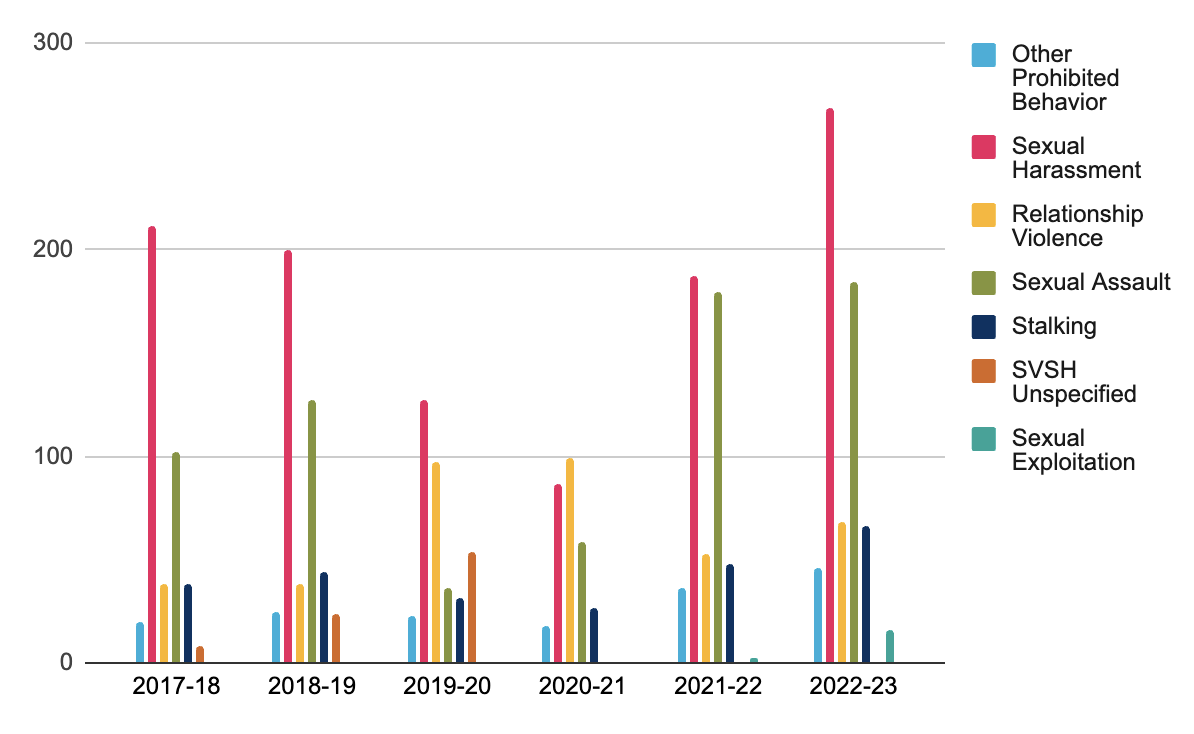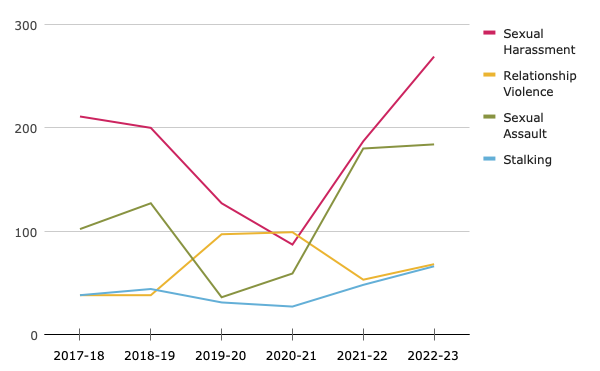Reports made to OPHD, both SVSH and non-SVSH, have steadily increased overall in recent years, except during the pandemic (Figure 24). However, the number of non-SVSH reports, in particular, grew more sharply in 2022-23 than in the previous two years. Figure 24, which tracks the number of reports by year, begins with 2020-21, the first year OPHD assumed responsibility for all discrimination and harassment cases, including employees.

Figure 24: Trends in SVSH and discrimination harassment reports made to OPHD (2020-2023)
Also shown in Figures 25 and 26 which span the years between 2018 and 2023, the number of reported sexual harassment allegations have increased over time. Sexual harassment was the most reported form of harm in each of the five years except for the 2020-21 academic year, when relationship violence, widely reported to have increased during the pandemic lockdown, was the most reported form of harm.

Figure 25: Trends in the types of SVSH allegations reported to OPHD from 2019-2023

Figure 26: Change in the alleged SVSH harm reported to OPHD between 2017-2023
It is difficult to know if the rise in reports indicates a rise in incidence. The utilization of confidential resources, the number of cases going to formal investigation, and the number of police reports can all shed light, but none are determinative. Another campus-wide survey like the 2018 MyVoice Survey would be informative.
Please note that in Figure 25, “SVSH Unspecified” was a category between 2017-2020 that encompassed cases in which OPHD did not have sufficient information about the harm alleged. Beginning with 2020-2021, the category was omitted when all campuses systemwide switched tracking software. In lieu of that broader category, “Sexual Harassment - Unspecified” and “Sexual Assault - Unspecified” were introduced in the 2020-21 year and counted under their respective umbrella categories (“Sexual Harassment” and “Sexual Assault”).
In 2021-22, sexual exploitation was added as a form of Prohibited Conduct in the revised UC SVSH Policy. Data about allegations of sexual exploitation were first included in the 2022 SVSH Annual Report.
In Figure 25, the “Other Prohibited Behavior” category includes retaliation.